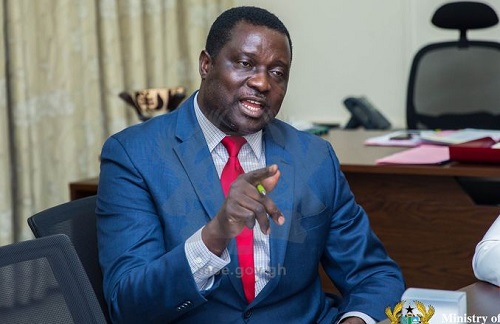
Politics and public policy: Legislating the Free SHS programme
In the 2017-18 academic year, the government introduced the Free Senior High School (Free SHS) programme by essentially an administrative directive.
Seven years later, the government has announced its intention to present a bill to Parliament that gives legislative backing to the programme. This upcoming legislation faces a challenge – how to reconcile the policy imperatives of free education with current political dynamics.
The policy imperatives and rationale for Free SHS
Article 25 (1) of Ghana’s constitution guarantees every Ghanaian a basic right to “equal educational opportunities and facilities.” It goes on further to state in Article 25(1)(b) that “secondary education in its different forms, including technical and vocational education, shall be made generally available and accessible to all by every appropriate means, and in particular, by the progressive introduction of free education.”
The constitutional imperative is very clear – a basic right to education that provides not just equal opportunities for all Ghanaians but is also free. To operationalise this constitutional mandate, the government of former President John Mahama introduced the Progressively Free SHS Programme during the 2015-16 academic year.
It was restricted to day students and covered a select number of fees (examination, entertainment, library, sports, culture, science development, etc.). The current Free SHS Programme gives full expression to the constitutional imperative as it covers all approved fees (boarding, admission, library, science centre, computer lab, examination, utility, textbooks, a meal for day students, etc.) and includes public second cycle students in agricultural, vocational and technical schools.
Whether progressively free or the current Free SHS programme, there is a recognition of a major barrier to accessing secondary education – cost. A point the current administration continues to argue in support of Free SHS.
This legislation, when passed, codifies into law important aspects of the Free SHS programme – a) policy rationale; b) rules of eligibility; and standardisation of what the free covers (post-implementation - the government has sometimes made ad hoc expenditure such as providing candidates for the West African Senior School Certificate Examination (WASSCE) with past questions in preparation for the examination).
The nobility of the constitutional imperative and the policy rationale for free secondary education must contend with certain political dynamics as the government prepares to introduce this bill to parliament.
The politics of the Free SHS programme
Our two main political parties – National Democratic Congress (NDC) and New Patriotic Party (NPP) – began their “fight” over the idea of free senior high school education as far back as 2012 when the NPP made it a central part of its election campaign.
The trajectory of the political arguments can be summed up as follows – a) progressively free (NDC) vs. completely free (NPP); b) free education (NPP) vs. quality education (NDC); and c) review of the programme (NDC) vs. potential cancellation of the programme by the NDC (NPP).
On Point A, the point of contention appeared not to be over whether to make education free or not, but rather the pace at which the constitutional imperative is realised. On Point B, the issue was mainly about priorities in the education sector and whether it was more important to address the quality issues first and the cost issues subsequently.
Point C emerged post the implementation of the programme and some of the challenges encountered despite its well-documented positives. The NDC argues that to address the challenges, it is imperative to undertake a comprehensive review of the programme.
The NPP counter argues that any comprehensive review of the programme is simply an attempt to completely cancel the programme. Another political reality is this- the configuration of Parliament has changed, post-programme implementation, with both parties commandeering the same number of seats.
We are all witnesses to how this has shaped legislative activities and behaviour during debates on such matters as the budget, e-levy, censure motion of the previous finance minister, etc. It is in this environment, with deep political disagreements, that the current administration will attempt to pass a Free SHS Bill.
To further complicate the political reality is the fact that we are in an election year. How will candidates’ position on the bill, once introduced, be framed as? Will any suggestions of improvement to the programme or recommendations to redefine eligibility requirements be weaponised against such voices? Will the proponents of the bill see its introduction and passage as a winning issue in this year’s election?
The point of reconciliation
A bill giving legislative backing to the Free SHS programme is long overdue. Our two parties must find points of reconciliation for this to happen. To find those points of reconciliation, there must be willingness to abandon the binary arguments of review vs. cancellation; good policy vs. bad policy; free vs. quality; NDC vs. NPP, etc. As to whether this will happen, time and events will tell.
The writer is the Project Director, Democracy Project
